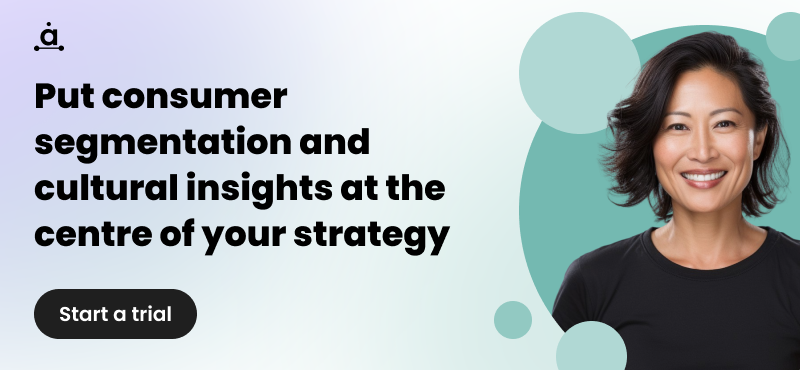The consumer mindset on sustainability with Talkwalker and Affinio
Marketers are realizing that today’s consumer makes informed choices about the brands they buy. Among the various factors being weighed in purchase decisions is the brand’s mission towards sustainability.
Why brands need to take a stance on the environment
We recently combined the power of Talkwalker’s social listening and consumer intelligence with Affinio’s affinity-first segmentation and personification to help marketers get behind this consumer mindset so they could understand the different stakeholder voices in the sustainability conversation. The resulting insights can inform public relations strategy - i.e.,, sizing the most vocal voices, understanding specific topics of concern, and revealing where to find these authors for targeted messaging.
Our methodology involved exporting a list of global Twitter authors from Talkwalker of those who discussed “sustainability” topics over the 6-month period between November 2021 and May 2022, from any sentiment angle. We then imported that list into Affinio to identify its clusters, opting to segment the audience of 17,598 authors into 6 sub-communities.
.png?width=1999&height=971&name=image7%20(9).png)
The consumer audience behind the sustainability conversation
It’s no surprise that activists for both the climate and social justice were among the two biggest sub-communities. Yet other sub-communities are joined more by their interests in non-environmental issues. Per NOW Affinio’s insights, the overall audience can be described as leaning slightly male (62.1%), dominated by millennial voices (ages 25-34), and most prevalent in the USA, UK, Australia, India, and Canada. Let’s take a closer look at the personas of the 3 largest segments to learn more about their nuances.
Climate activists 📣
This largest group skews a little older than the overall audience and is inclined to self-describe with terms like environment, wildlife, and nature. Their retweeted and liked content shows specific concerns around lithium mining (and its connection to electric vehicle batteries) and CO2 levels, and their top-used hashtags include #biodiversity, #climateaction, and #earthday. Among the most prevalent influences are Greta Thunberg, George Monbiot, and UN Climate Change; whereas the top 3 niche insights are Eco1stArt, Biofuelwatch, and Blair Palese. They commonly seek content from sources like 38 Degrees, an online campaigning organization.
Huge amounts of toxic chemicals are needed to mine this lithium. In Bolivia, Chile and Argentina, the "lithium triangle," this has led to environmental problems like soil contamination and water shortages. (/7)https://t.co/kkB2swSuKR
— Slow Factory (@theslowfactory) April 25, 2022
By the brilliant Steve Cutts, for Earth Day. pic.twitter.com/Z1V0Nd25ZN
— art4cc (@ArtForCC) April 23, 2022
Criminal. Disgusting. Shameful.
— Stephen Whyte (@1StephenWhyte) October 13, 2022
Just some of the words that come to mind about #water companies that are allowed dump raw sewage into UK rivers 372,000 times during 2021.
While #Farmers are vilified for not being #sustainable
FOLLOW if you want a fairer food supply chain
The leaders are celebrating Earth Day in this way today. pic.twitter.com/ggq5A3sG5q
— arin sirohi ⚡️ (@ArinSirohi_) April 22, 2022
Social justice 💙
This group has the highest proportion of females of all clusters and is inclined to self-describe with terms like #blm and justice. Their retweeted and liked content shows concerns around media coverage of climate change, and their top-used hashtags include other focuses like Roe v. Wade. The 3 most prominent influences on this group are Alexandria Ocasio-Cortez, President Biden, and Elizabeth Warren; whereas the top 3 niche interests are @themlowery, JB Minatra, and Gerald Kutney. They commonly seek content from sources like Newsweek, MSNBC, and The Daily Beast.
One of the worst things about this story / non-story? Something similar happened a couple of years ago and also was shoved under the rug by most media and basically forgotten. https://t.co/E6wwnS1Pju
— Revolutionary Propagandist ✊🏽 Stop Cop City (@RealDialectical) April 24, 2022
Meme culture 💀
This group is by far the youngest cluster (with 29.6% falling between age 18-24), bringing in the Gen Z viewpoint. Sustainability is one of the many topics factoring into their daily lives. They tend to self-describe by their pronouns, gaming interests, and artististic pursuits. Their liked tweets show an acknowledgment of Elon Musk’s influence, and their top-used hashtags center around pop culture topics like #metgala, #eurovision, and #maythe4thbewithyou. This group is no stranger to satire, especially via the use of memes. Their top 3 broad influences are Alexandria Ocasio-Cortez, Wint (@dril), and Mark Hamill; whereas their top 3 niche interests are Kingfisher & Wombat, Laura Kate Dale, and PushingUpRoses. They commonly seek content from satirical sources like Reductress and The Onion.
Where brands stand in the conversation
Although plastics are not dominating the recent sustainability conversation among these clusters, they are certainly a part of it. Taking the lens of consumer affinity towards plastic producers, we see how the different clusters resonate more or less with associated corporate brands. Nestle and Coca-Cola dominate the Social Justice cluster, and PepsiCo stands out among the Conservative Pundits. Armed with this knowledge, brands can inform their marketing strategy to double-down where they excel and/or strive to fill the ‘whitespace’ gaps where they don’t.
.png?width=603&height=687&name=image2%20(15).png)
Strategizing faster
As demonstrated, the power of social listening layered with affinity-based segmentation can help marketers tackle deep analysis in a scalable way. Personifying social authors lets companies take a pulse on thousands of real-life “respondents” without the time delay and bias associated with traditional surveys, polls, and panels. Moreover, once clusters have been identified, personalization at scale can follow suit for messaging, targeting, and product development. And, these groups can even be ported back into social listening for ongoing conversation monitoring.
About Talkwalker and Affinio
Together, these two services let you put a face to any global conversation. Talkwalker offers sophisticated topic exploration with numerous filters allowing, among many things, author slicing by seasonality or sentiment. Affinio lets users upload audiences from Talkwalker and cluster them for more granular persona creation. Existing mutual customers of both Affinio and Talkwalker can already leverage this powerful combination now.






